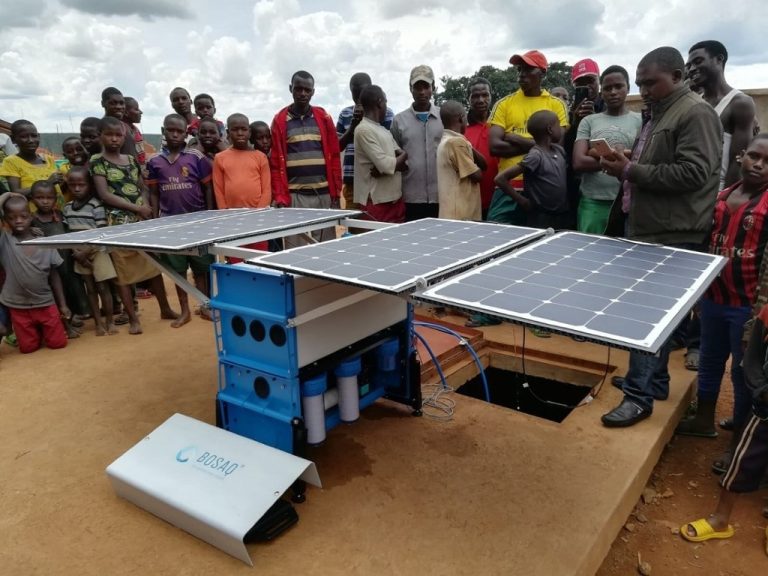263 river basins are shared by two or more countries around the world, making up for about three-fifths of water flowing in all rivers[1]. According to The Pacific Institute, 926 water-related conflicts have historically taken place in the world, as shown in Figure 1.

Research states that wars of any nature are not initiated by one single cause, but instead as a combination of different circumstances that boil-up. There is a misconception that countries go to war over water, however, nations under water-stress conditions solve their shortages through trade and international agreements[2].
Yet, water-related conflicts not only occur at international levels, but also between regions, or economic sectors of the same country. Agriculture and energy are two examples in which disputes over water can take place. However, correct water management is capable of ensuring the continuous activity of all sectors without compromising each other’s operations.
Reducing hostilities over water requires understanding the situation from the roots, and working to reduce the elements that contribute to the conflict. When confrontation is “triggered” by water, the main factors behind it are attributable to climate change, such as water scarcity and access to water resources. In this case, absolute water scarcity is not the main cause, but instead poor distribution or bad infrastructure. Nonetheless, factors such as low rainfall, inadequate water supply, dependency on a major water source, high population growth and rapid urbanization, modernization, and industrialization, and ultimately, poor relations between countries or groups within countries[1] also add-up to water-related conflicts. Hereby the importance of optimal water management practices and their potential to prevent or tackle water-related hostilities.
Different approaches can by-pass conflicts over water. From a water management perspective, increasing the availability of water and clean water, and expanding use of greywater [1] are some of these alternatives.
Increasing water availability
To increase water availability, one can reducing water use, which includes preventing wasteful uses and increasing efficient water use. This approach is especially applicable in countries with water conflicts related to agricultural activities. An example is the struggle over the Nile river basin.
The Nile Basin
Geographically, as shown in Figure 2, this basin is shared by 11 riparian countries. Table 1 shows related data of the different countries with their respective basin share, dams, and renewable water sources.

Table 1: Figures and distribution of the Nile river basin. Source: https://www.waternet.be/nile

All the countries in the Nile basin have agricultural-based economies. Agriculture consumes high amounts of water, and it is also an important source of water pollution[4], especially when good water management practices are not implemented. In this sense, water productivity escalation in crops is the key to achieve high outputs without overuse of water resources. Drip irrigation is one of the alternatives to increase the “crop-per-drop” ratio[5].
Increasing the quality of water
Another methodology is to increase the availability quality of water. Reducing industrial water pollution, preventing contamination of freshwater, and extending the reuse of wastewater from domestic or industrial activities are some alternatives to take on these challenges. These solutions embody improving and enhancing wastewater treatment and watershed management activities[1].
Establishing and implementing regulations and policies can strengthen spread initiatives at a local, regional, or national level. Sustainable use of new groundwater wells, deployment of improved desalination or wastewater treatment methods pave the way to a sustainable use of resources[1].
Incorporating resilience and recalibrating response to global warming effects through adaptation measures is a way to prevent or diminish confrontations over water around the world. In this regard, technological innovation is a valuable tool to integrate within the range of solutions to water-related disputes. Figure 3 shows one innovative solution offered by BOSAQ.
Matching necessary water quality with its final use, along with toning infrastructure scale with water needs are effective local-based solutions with positive effects in water distribution and use. Irrigation with treated greywater, and the use of decentralized rainwater capture and storage for domestic use or small-scale irrigation, instead of depending on large and frequently confrontation inducing facilities[5] are ways to decouple water use from related frictions.

If these local-based solutions are extrapolated and implemented at a national level to ensure sustainable water supply and demand options, water can be transformed from being one of the causes of conflicts into a peacemaking element between parties.
Our BOSAQ team envisions a world in which everyone has access to clean drinking water. Our water experts actively work to find sustainable solutions to provide safe drinking water challenges around the world with a technology, and a group of water experts that come together under the mission of providing the world with clean water in a socially responsible way. Our Water Heroes provide vulnerable local communities with access to a steady, sustainable source of clean drinking water.
[1] B. S. Levy and V. W. Sidel, ‘Water Rights and Water Fights: Preventing and Resolving Conflicts Before They Boil Over’, Am. J. Public Health, vol. 101, no. 5, pp. 778–780, May 2011, doi: 10.2105/AJPH.2010.194670.
[2] W. Barnaby, ‘Do nations go to war over water?’, Nature, vol. 458, no. 7236, pp. 282–283, Mar. 2009, doi: 10.1038/458282a.
[3] J. Allan et al., ‘Navigating the complexities of coordinated conservation along the river Nile’, Sci. Adv., vol. 5, p. eaau7668, Apr. 2019, doi: 10.1126/sciadv.aau7668.
[4] ‘Wastewater treatment challenges in food processing and agriculture’, Water Tech Online, Aug. 2018. https://www.watertechonline.com/wastewater/article/15550688/wastewater-treatment-challenges-in-food-processing-and-agriculture (accessed Jun. 27, 2020).
[5] Gehrig, Jason and Rogers, Mark M., ‘Water and Conflict. Incorporating peacebuilding into water development’, Catholic Relief Services, Baltimore, USA, 2009. Accessed: Jun. 27, 2020. [Online]. Available: https://www.pseau.org/outils/ouvrages/crs_water_conflict.pdf.